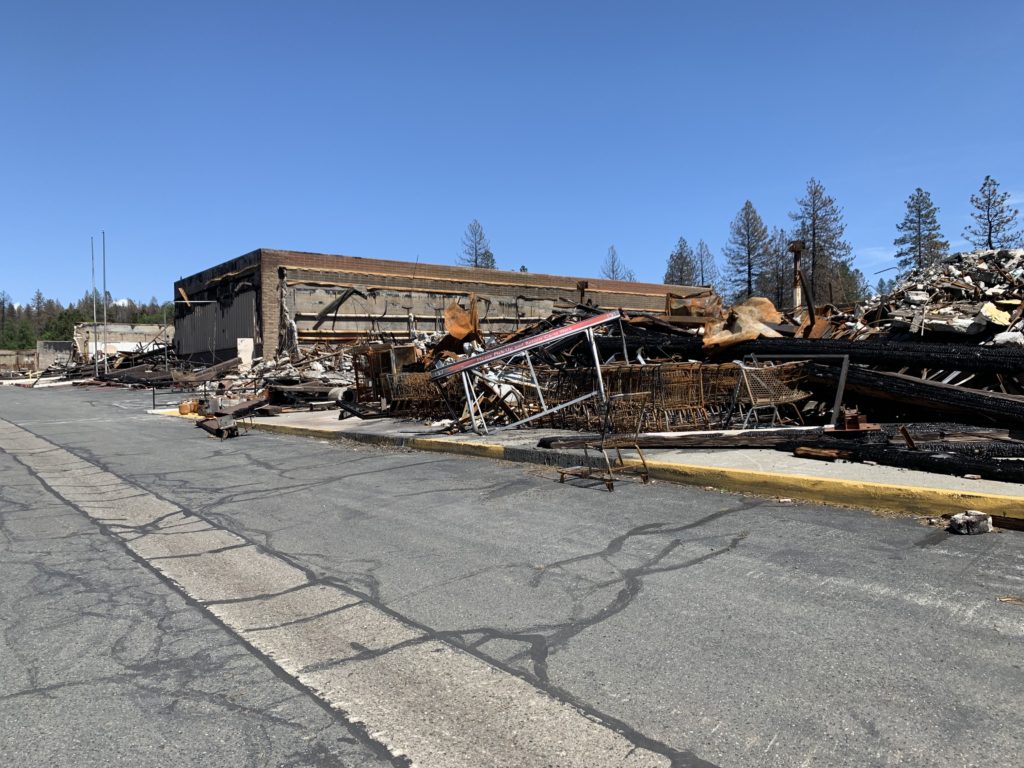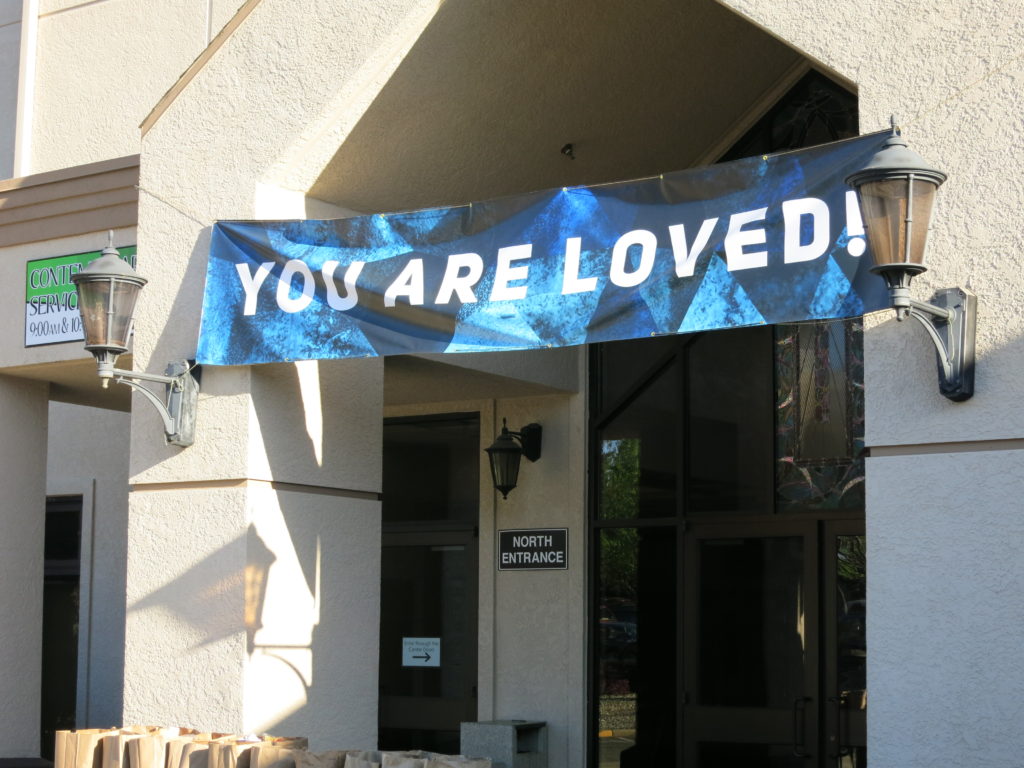As 8 a.m. rolled around, St. John the Evangelist Episcopal Church in Chico, California began to get more and more crowded. Men and women starting their day said hello to one another, and were instructed to sign in before finding their seats. The center rectangle was reserved for the Long-Term Recovery Group Board of Directors, and nearly a dozen round, eight top tables were scattered across the room with ample space to view the projector screen.
By 8:02 a.m. the meeting was underway, and the room was full. Ninety-four people in attendance and other individuals who came late sat on the windowsills and leaned against the large room’s back wall.
Around the room, everyone introduced themselves, one by one. Each from a different organization, ready to make a difference.
Lew Powell, 76, is part of the clergy at St. John’s and works with Magalia Behavioral Health in order to provide assistance to individuals struggling after the fire and with their faith.
“Mental health has been a constant over the last six months,” said Powell.
Everything from stress counseling, to drop in disaster relief, there isn’t a service Cal Hope, Magalia Behavioral Health and Butte County Behavioral Health aren’t looking to provide.

“Many organizations are doing this work,” said Powell. “People have pure stress, trauma and grief. These adults need assistance and we have seen some collective improvements. Presence is the most important thing we can offer and we are welcomed into the community to work on helping those who need it.”
Many subcommittees make up the long-term recovery group and many organizations sit at the table in hopes to make a lasting difference in their community. Rebuild Paradise, Habitat for Humanity, Habitat for Humanity International, Resilient Resources, Chico Council, Spiritual Arts Commission, The Church of Scientology, Housing subcommittee and the Chico Children’s Museum were just a few of the many welcomed into this space with the common goal of restoring Butte County to a place many people could call home.
Around the room, subcommittees and organizations shared news, updates and volunteer needs. Individuals stood-up from their padded chairs, in the cavernous, yet overflowing church space, explaining their progress and each next step.
Free health care for the Ridge, medical, dental and vision checks would be offered for those who needed it, run by volunteer care providers with the hope of receiving a grant to have three mobile healthcare service centers to assist survivors of the fire.
With ease, the group nodded, determined how to disseminate the information and moved to the next topic. Each person needing to be to their day-jobs quickly after the conclusion of the meeting, and those who didn’t would hang around, make plans for what was to come and socialize, adding normalcy into their lives after what was, easily, the most traumatic event of their life.
The group mentioned the importance of the high school graduation to the town, as it symbolized overcoming, completing the year and the future ahead. It was if the room breathed fresh air at the prospect of celebrating the accomplishments of the town’s young people, ready to fearlessly move into the next phases of their lives, life after the Campfire.

Each individual sitting aroung the table offered hope, community and forward thinking, looking to establish a long-term solution that would lead to prosperity. Each Friday, at 8 a.m. this room would fill, with the same amount of stamina, purpose and drive always more than 80 people, ready to make a difference.
Ecosystem regulations were beginning to be put in place, bio rejuvenation processes to pull toxins out of the soil, restoration and further recovery planning. With thousands of trees needing to be removed from Paradise, and hundreds of lots to clean, the committee faces months of work ahead.
“Who knew our trees, the thing we love the most about Paradise, would become our biggest threat,” said Lauren Gill. “Our number one priority is cleaning the town.”
Paradise and surrounding communities like Concow and Magalia are still ridden with dead trees standing, dead trees that will fall.
“The trees don’t realize they’re dead,” said David Stookey, who lost his home in Concow. “The sap in them boils and hardens, and water can’t travel through the tree anymore, so the tree thinks it’s alive and doesn’t fall until it essentially dehydrates.”
In Butte County, 128 crews are actively working to remove trees, debris and clear properties. When summer rolls around, that number will rise to 168, hoping to complete more of the necessary work before Fall in order to allow people to begin returning to normalcy.
Megan Kurtz of California State Chico, gave the board report, announcing that the long-term recovery group would be welcoming a full-time executive director, Matt Plotkin.
As the individuals in the room clapped for his new role, he stood to speak.
“November 8 presented me with unknowns I was not prepared to face. That day was a world changer and a game changer,” said Plotkin.
He commended the group on their hope, their sense of community and their drive. Jim Davis, a community recovery supervisor with FEMA added on to this sentiment.
“I leave more hopeful, not just the energy, but this is an absolutely remarkable community. This is one of the most remarkable trajectories. You’re going to get tired, you’re going to get worn down. So take care of yourselves,” said Davis.
Beginning his career in disaster relief with hurricane Katrina in 2005, Davis has seen disasters, he knows them, he can vividly recall each disaster he’s helped solve, but he called special attention to the people of Butte County.
“This is not normal, neither was our disaster. It takes all of us here, and the people who are not in this room,” said Plotkin.
The room was dismissed on a note of collaboration, togetherness and understanding that the months ahead would be no easier than the months that passed, but every Friday, if these people showed up, if they brought their friends, if they wanted to see real, significant change, they would.